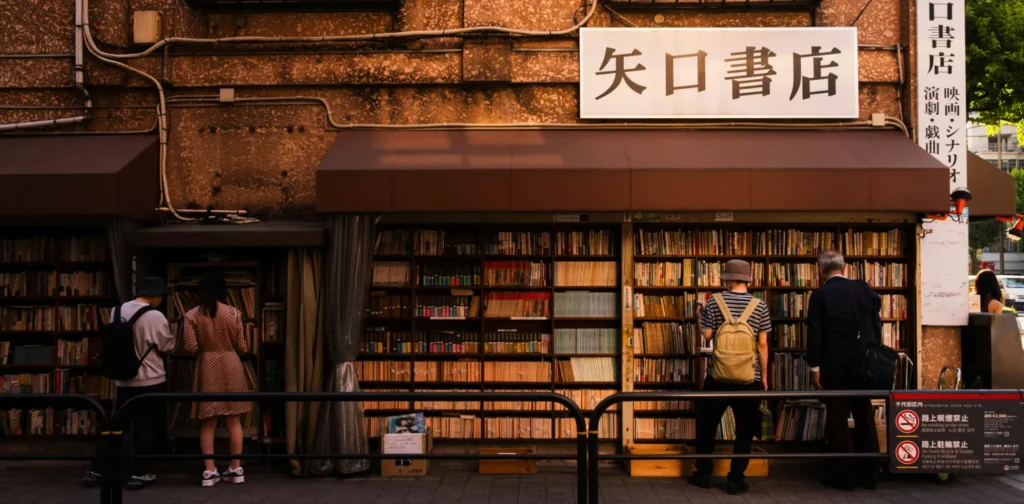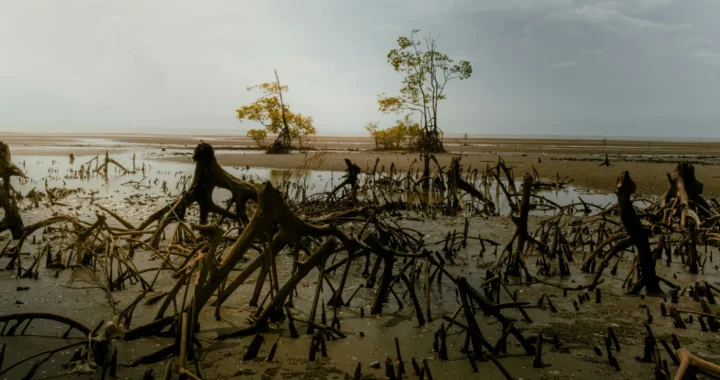Reviving Physical Bookstores in Japan Amidst Digitalization

Photo: Fumiaki Hayashi on Unsplash.
With the wave of technological development and digitalization, it is almost too easy to abandon anything physical, including books. In Japan, this has resulted in a dwindling number of physical bookstores, followed by various efforts to keep them alive.
Japan’s Physical Bookstores Decline
Beyond just a place to sell books, physical bookstores are also a hub of culture and communities. They can give hope in times of despair; they can also bring communities together in times of crisis.
In Japan, the number of physical bookstores has been decreasing rather significantly. As reported by the Japan Publishing Industry Foundation for Culture, 27.7% of Japan’s towns and cities do not have bookstores as of March 2024. Government data shows that low profit margins and tight competition with online stores are major reasons for this decline.
As digital technology becomes mainstream, many people start to migrate to and purchase digital books due to their practicality. Thousands of copies of books are left unsold to collect dust on bookstore shelves. As a result, bookstores have to pay transportation costs for returning unsold books and magazines, which they deduct from their already low earnings. Moreover, discount points from digital bookstores make them more attractive to buyers, leaving physical bookstores further behind.
Government and Community Initiatives
As a response, Japan’s Ministry of Economy, Trade, and Industry decided to form a cross-departmental project team to promote physical bookstores across the country. This project will invite bookstore managers to share their opinions about the conditions on the ground. Additionally, the government will introduce various ways to increase customer numbers and other support measures.
“The central and local governments and related industries should understand these problems and do what they can (to revive bookstores),” said Yoji Muto, the Minister of Industry, as reported by Japan Times.
Meanwhile, bookstore owners have been taking action in their own ways. In Kanda Jimbocho district, Tokyo, a shelf-sharing bookstore was established as a way to bring back the joy of physically browsing books for the communities. From individuals to companies, anyone can rent a shelf for 4,850-9,350 yen ($32-$61) per month and place any kind of books for sale. This way, people can have a variety of book options, not only just the popular ones sold at regular bookstores.
“Customers and shelf-owners visit the bookstore not only to sell and buy books, but to enjoy chatting about books,” said Rokurou Yui, one of the shelf-sharing bookstores, as cited in RFI.
The Importance of Real-life Engagement
Communities are the heart of our society, and physical spaces are important facilitators of community building. The presence of brick-and-mortar bookstores highlights the importance of real-life engagement with the people around us, as well as the accessibility of educational and cultural spaces for people to learn, socialize, and grow.
Editor: Nazalea Kusuma

Subscribe to Green Network Asia
Strengthen your personal and professional development with cross-sectoral insights on sustainability-related issues and sustainable development across the Asia Pacific and beyond.

Kresentia Madina
Madina is the Assistant Manager for Digital Publications at Green Network Asia. She graduated from Universitas Indonesia with a bachelor's degree in English Literature. She has three years of professional experience working on GNA international digital publications, programs, and partnerships particularly on social and cultural issues.


 Nickel Mining in Raja Ampat and the Widespread Cost of Natural Resource Exploitation
Nickel Mining in Raja Ampat and the Widespread Cost of Natural Resource Exploitation  Lumbung Sosial: Challenges and Opportunities of Indonesia’s Social Barn Program
Lumbung Sosial: Challenges and Opportunities of Indonesia’s Social Barn Program  A Worrying State of Insect Decline
A Worrying State of Insect Decline  GEF Approves Funding for Biodiversity Conservation Projects in Indonesia
GEF Approves Funding for Biodiversity Conservation Projects in Indonesia  Mikoko Pamoja, A Blue Carbon Project for Climate Resilience
Mikoko Pamoja, A Blue Carbon Project for Climate Resilience  Australia Released a Sustainable Finance Taxonomy to Support Net-zero Transition
Australia Released a Sustainable Finance Taxonomy to Support Net-zero Transition